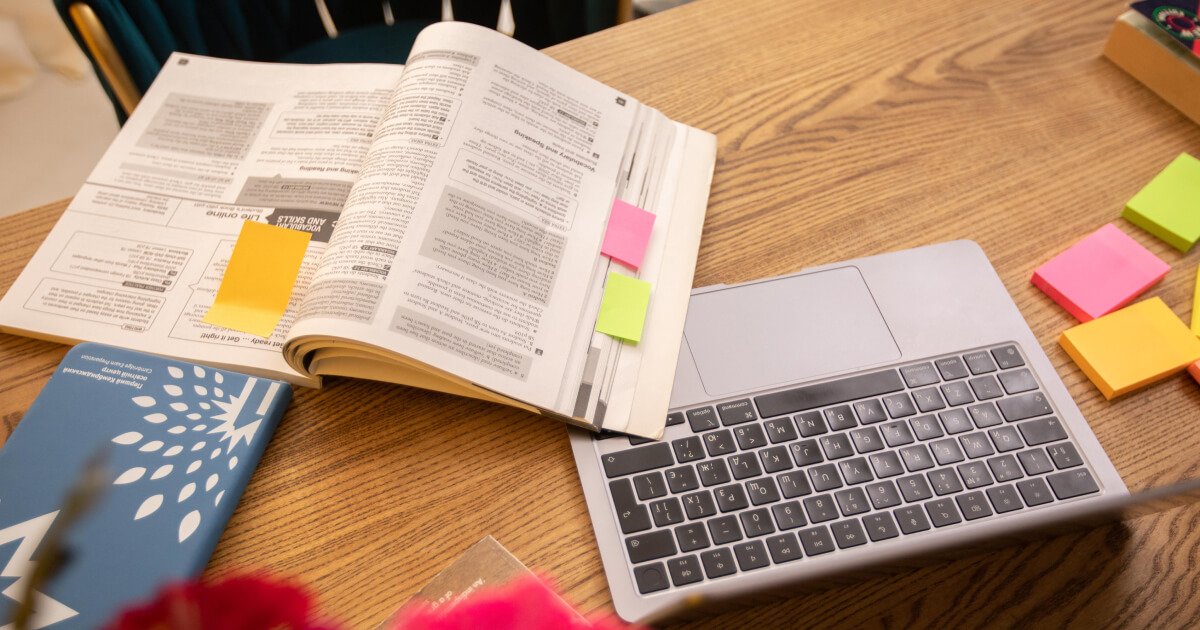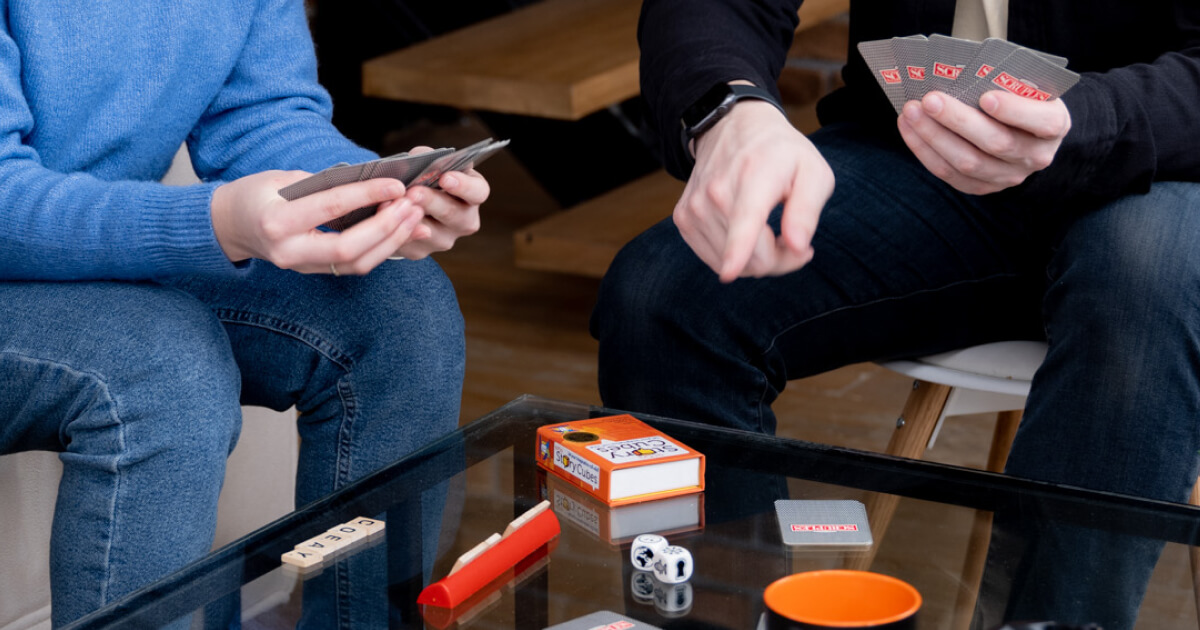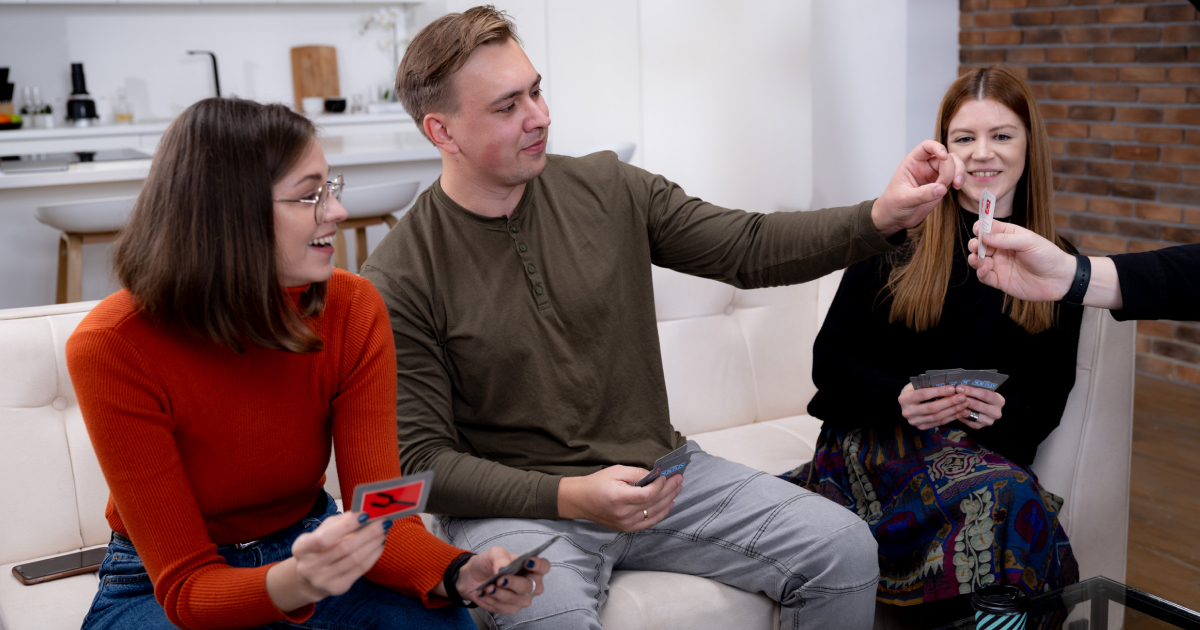
How to teach phrasal verbs
- Teaching qualifications
- Activities
- Tips & Strategies
- Methodology

17.11.2023
Students have always loved board games that have their special romance. Playing “Alias” with the whole class or “UNO” face-to-face, “Snakes and Ladders” with YL or teens are great ways to create good memories, aren’t they?
Nowadays, the market offers such a wide variety of board games that you can easily get stuck when choosing the "only one". We decided to help you a little with the right choice and made a selection of games that can be used to improve and maintain the level of English as well as for teaching. They are all universal, not limited to one language and purely educational purposes. Let's get started!
Best pronunciation games!
The game can become a great discovery for you because of its variability. The set includes transparent cards with geometric images and cards with words and phrases.
Transparent cards are laid out in a circle, as in the picture, and then the player who will show the word picks up a card with words, and the one who guesses calls a random number of the word — and the game begins.
The player who shows can use any geometric shapes on the transparent cards and combine them as he or she wants so that the word can be guessed. Here is an example: the word — the Statue of Liberty — and this is what the player has created from the figures.
Not only one person can take part in the guessing, but also the whole group. The scores are given to the one who guessed and the one who showed if the word or phrase was guessed correctly.
The game is a great way to recycle vocabulary in both pairs and groups. Students work with both the meaning of the word and the pronunciation, that’s why the cards can be used for whole phrases, for creating stories using certain grammar, and most importantly, for memorizing, because the game develops associative thinking.
Imagine can be played with any set of words. The game can last from 5 to 30 minutes or even a whole lesson. Depending on the lesson aims, you can prepare from 1 to 5 activities with this game. It takes up little space, so you can take it with you on a trip and engage with children, repeating words or geometric shapes.

This game can literally fit in your pocket. The set includes 9 cubes with different images on the faces. You can use cubes to recycle and use grammar in different contexts: it perfectly develops associative and abstract thinking. Adding cubes can make the game more challenging, but we advise you to start with 3: they are enough for a story of 3-6 sentences.
The cubes come in different thematic sets: travel, mysticism, fantasy, myths, unpredictable situations, superpowers, prehistoric era, supernatural, alien invasion, etc. That is why they can be used to create different stories using the new vocabulary and recycling the old one both at the beginning of the lesson to warm up the students and at the end as a conversational activity.
Games on recycling vocabulary
This game provides the opportunity to use different ways of explaining words. The cube specifies how you need to do it. It may be:
Most interestingly, the map on which the game takes place depicts a house with a large number of rooms, and the goal of the game is to be in the attic! This game can be used when teaching the topic “Housing” or you can create your own list of words or phrases for guessing.
Ekivoki is perfect for both children and adults. You can adjust the playing time yourself by setting any room on the map as a goal.
The nice thing is that this is a fairly budget game. And there are compact versions that you can carry with you.
Use this game to recycle the learned material.
It can become your assistant during summer camps and for project work, where the task can be to create your own map.

Have fun with flashcards
Spark an ESL lesson with us!This board game is suitable for debates or heated discussions, so it is a great option for speaking clubs. The game consists of 68 cards that offer very contradictory statements.
Everyone has the opportunity to be a leader. To do this, you need to pull out a card and read, for example: "Would you prefer to get an answer to any question or get the opportunity to read other people's thoughts for a month."
After the question, you must make a choice in favor of one of the options and justify it. Other participants can also take part in the discussion of their choice, agree or deny it. The main task is to support the choice with arguments, and the goal is to reassure the facilitator of the correctness of your choice. The main thing is not to quarrel.
As a teacher, you can add your own options, change them, or set certain conditions under which students can use certain phrases or words.

Another budget game that is somewhat reminiscent of Dixit. Here you are provided with cards with a set of words of different complexity in English or any other language.
Each player must move their top card slightly to make the numbers in the upper right corner of the second card visible. These numbers will indicate the word numbers from the first card for which the player will need to create an association.
The player must name these words in one word. In this game, everyone has only one attempt to guess the word. If not all words have been guessed correctly, the facilitator can name the number of correctly guessed words to make the game easier for those who guess. The one who wins gets rid of all his cards first!
It’s a great game for developing associative thinking, learning, or recycling new words. The teacher can also change the lists of words in the cards and change them depending on the needs.
You should not necessarily limit yourself to strict rules for all of the above games. You can always adapt them for your parties or activities, as well as for playing with children. You can change, add or remove cards, create your own. Creating your own cards or even your own board game can be a great idea for homework or project! Have fun and good luck in teaching the language!
Board games are only great for children. Do you agree?
Yulia Chorna
Author
Product Manager at Grade University | Experienced Educator in General, Business English & Exam Prep | ELT Conference Organiser | Speaker at TESOL & IATEFL Conferences | Passionate About Teacher Development & Educational Innovation
Comments
Leave your comment